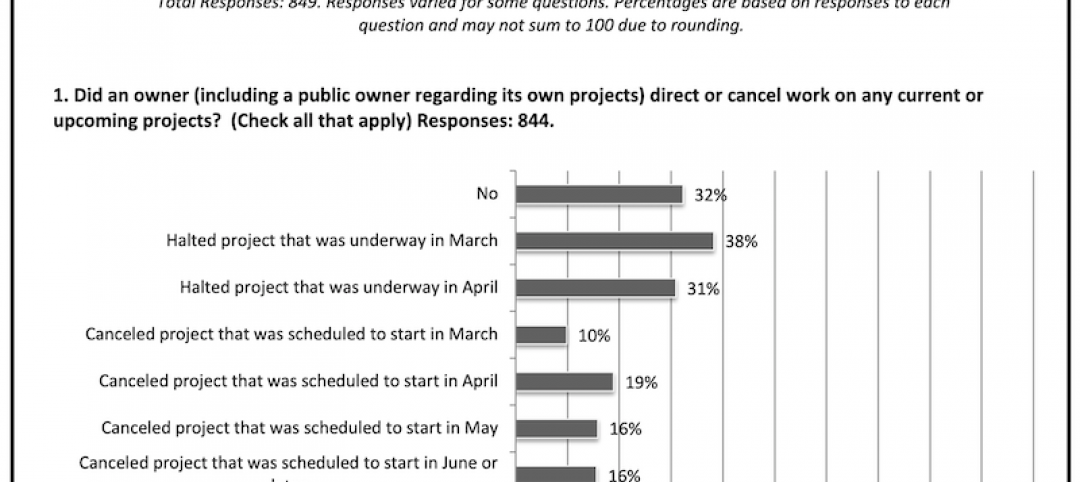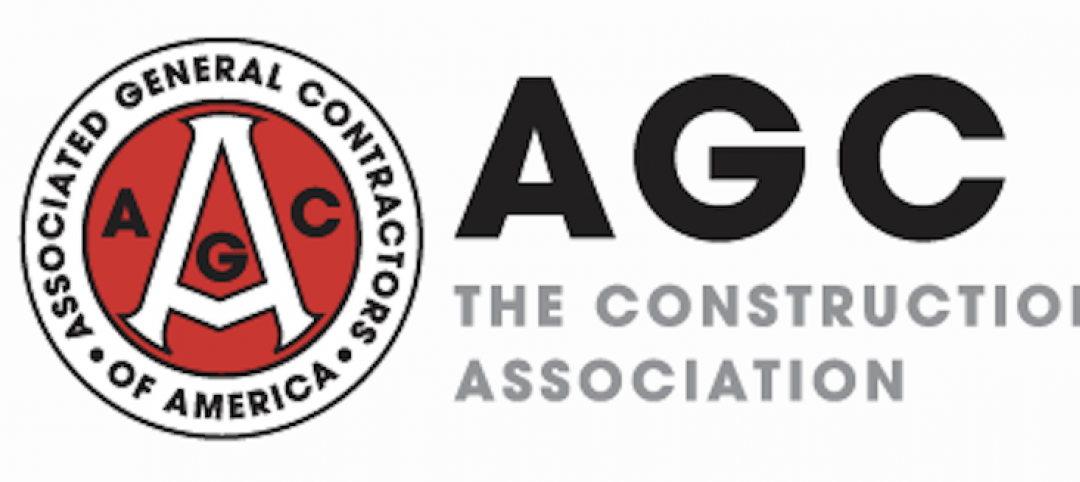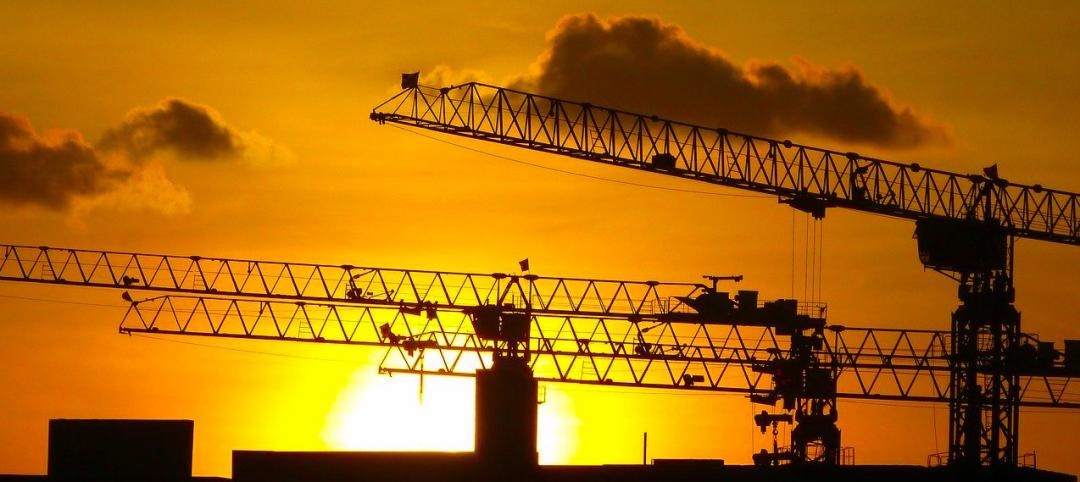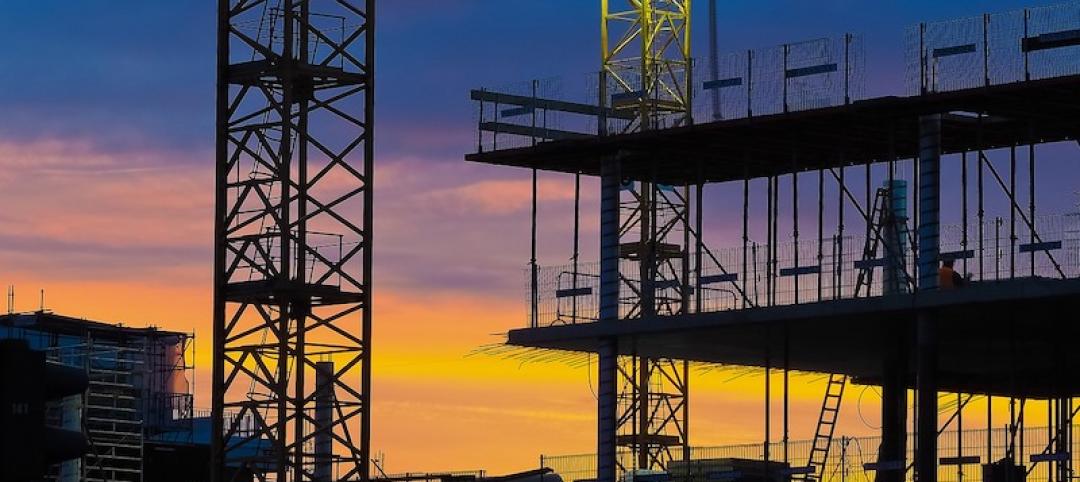The International Code Council surveyed building and fire departments to learn how code officials are coping with the professional challenges brought on by the COVID-19 pandemic. From March 22 through April 1, 2020, more than 1,150 respondents from all 50 U.S. states and the District of Columbia provided input. Respondents came from jurisdictions of all sizes ranging from 1,000 people to over 4.6 million.
The survey collects trends, ideas, solutions and best practices from code officials about how they are keeping up with new building permits and new construction during the pandemic months.
Although the U.S. Department of Homeland Security has determined the work of building and fire prevention departments to be essential to the nation’s response to the coronavirus pandemic—and no state has made a contrary determination—6 in 10 survey respondents did not have the capability to remotely carry out critical aspects of their work. With many departments already under resourced and many state and local governments facing severe revenue downturns resulting from the coronavirus pandemic, it is critical that federal coronavirus response funding be directed to building and fire prevention departments that need it to continue their essential functions. Such investments would speed the restart of our economy and produce lasting reductions in departmental operation costs and permitting timelines.
The recently passed Coronavirus Aid, Relief, and. Economic Security Act (CARES Act, H.R. 748), provides state, local, tribal, and territorial (SLTT) governments with $150 billion through a Coronavirus Relief Fund (CRF) for necessary spending in response to this public health emergency, $45.4 billion through FEMA’s Disaster Relief Fund (DRF), and $5 billion through the Community Development Block Grant (CDBG) program. Funding that enables code departments to work remotely should be an eligible activity under the CRF, and both the DRF and CDBG program have funded code enforcement activities previously. The Code Council has also urged the U.S. Congress to allocate support specifically for code department remote capabilities as part of a fourth coronavirus response measure Congress is currently considering.
The main survey findings are:
- The majority of departments surveyed (93%) are still performing inspections, either remotely or in-person. This falls in line with what the Code Council expected given that many areas have classified construction and code compliance activities as essential.
- More than half (65%) of respondents said that some or all employees that conduct plan review or inspections are working remotely.
- A large percentage of jurisdictions (66%) use a combination of electronic and hard copy versions of building safety codes, while a much smaller percentage of jurisdictions (7%) have advanced to using all electronic. 27% of respondents said their jurisdiction used only hard copies. This could create challenges where hard copies are shared and departments do not have enough hard copies for each now-remote employee that needs them. In fact, 23% said their employees do not have access to needed hard copy code books.
-
Many jurisdictions have made the switch to electronic services, but a large percentage still do not have the capacity to go virtual. In particular:
- 40% do not have the capability to do electronic/remote plan reviews.
- 30% do not have the capability to do any aspect of electronic/remote permitting.
- 61% do not have the capability for electronic/remote inspections.
- To expand services to fight the coronavirus pandemic, many healthcare facilities are putting beds in alternative locations (like school gymnasiums, hotels, outpatient surgical centers) or in temporary structures in their parking lots. 26% of respondents have encountered requests for permits for temporary occupancy and/or temporary structures as a result of the COVID-19 pandemic.
“The results of this survey show how quickly and efficiently many Code Council governmental members have moved from office work to telework and have adapted to a new virtual work environment,” said Code Council Chief Executive Officer Dominic Sims, CBO. “Now more than ever, we are reminded of the importance of building safety. Throughout this crisis, the Code Council will remain committed to its mission to advocate for building safety professionals around the world and identify new ways to contribute to public safety.”
“Code officials are essential to keeping our communities safe and protected. Especially during these difficult times when we find our greatest protection from remaining inside, their continued service to ensure building and public safety is critical,” said Code Council Senior Vice President of Government Relations Sara Yerkes. “We commend the offices across the nation that have virtually reframed their operations and we urge Congress, states and local governments to recognize the need for an allocation of resources directed to building departments to continue the important work of ensuring new construction and remodeling projects meet fundamental safety standards.”
This survey is ongoing, and the Code Council will continue to collect responses to these important questions. Forthcoming will be a document outlining best practices on virtual code compliance activities.
View the survey report and infographic.
Related Stories
Coronavirus | Mar 26, 2020
AIA praises Congress for advancing desperately needed COVID-19 relief
Approval for the latest relief legislation advances a number of AIA-supported measures to help meet the needs of firms and members.
Coronavirus | Mar 25, 2020
Coronavirus pandemic's impact on U.S. construction, notably the multifamily sector - 04-30-20 update
Coronavirus pandemic's impact on U.S. construction, notably the multifamily sector - 04-30-20 update
Coronavirus | Mar 25, 2020
Plaza Construction and Central Consulting & Contracting strategic alliance expands to Florida in response to coronavirus pandemic
New York City-based partnership to aid Florida healthcare systems amid COVID-19 outbreak and will continue medical construction in the region following resolution.
| Mar 25, 2020
Designing public health laboratories to safeguard researchers during pandemics
As laboratory designers, we want to shed light on a subset of our population critical to protecting us from, and preventing the spread of, severe outbreaks: public health researchers.
Market Data | Mar 23, 2020
Coronavirus will reshape UAE construction
The impact of the virus has been felt in the UAE, where precautionary measures have been implemented to combat the spread of the virus through social distancing.
Coronavirus | Mar 21, 2020
Perkins and Will’s CEO sees a light at the end of COVID-19 tunnel
Phil Harrison says the virus outbreak could make more clients see the connection between design and wellbeing.
Coronavirus | Mar 21, 2020
Construction business and union leaders call on government officials to include construction as an 'essential service' during shutdowns
The chief executive officer of the Associated General Contractors of America, Stephen E. Sandherr, and the President of North America’s Building Trades Unions, Sean McGarvey, issued the following joint statement urging Government Officials to Exempt Construction Work from Regional, State and Local Work Shutdowns.
Coronavirus | Mar 21, 2020
Associated General Contractors launches eight-part webinar series around COVID-19
The programming, which begins Monday, will offer advice on how businesses might need to adjust during the virus.
Coronavirus | Mar 20, 2020
BD+C research: The AEC industry braces for tough sledding in the coming months amid COVID-19 outbreak
A new BD+C poll of U.S. architecture, engineering, and construction firms finds that companies are anticipating project postponements and delays.
Coronavirus | Mar 20, 2020
Pandemic has halted or delayed projects for 28% of contractors
Coronavirus-caused slowdown contrasts with January figures showing a majority of metro areas added construction jobs; Officials note New infrastructure funding and paid family leave fixes are needed.

















